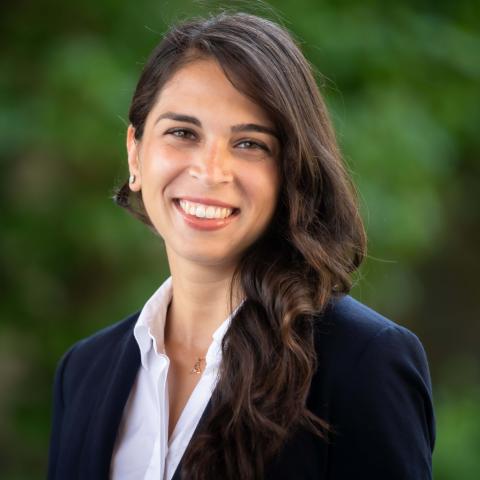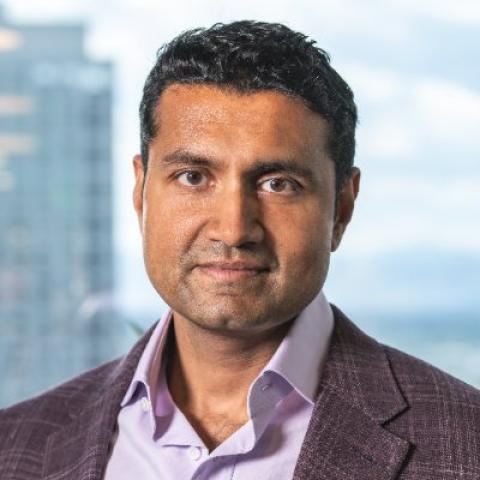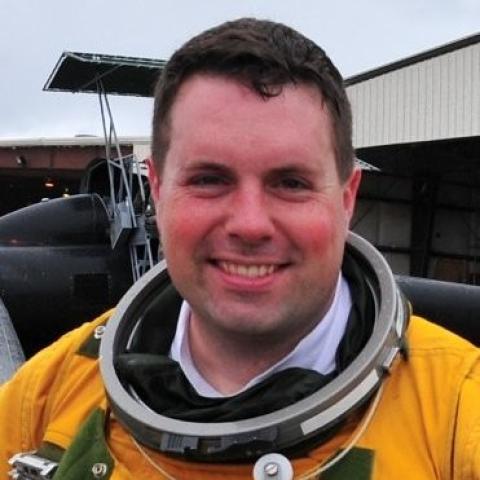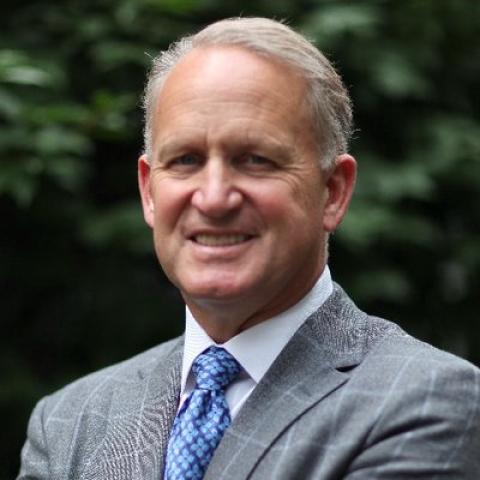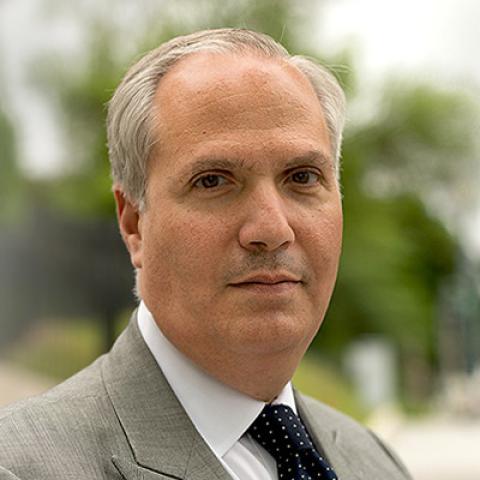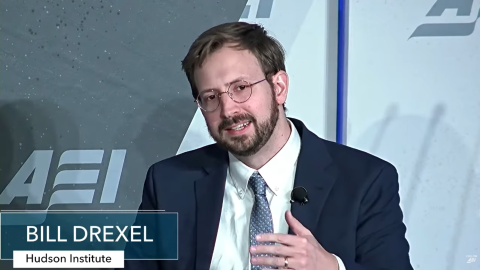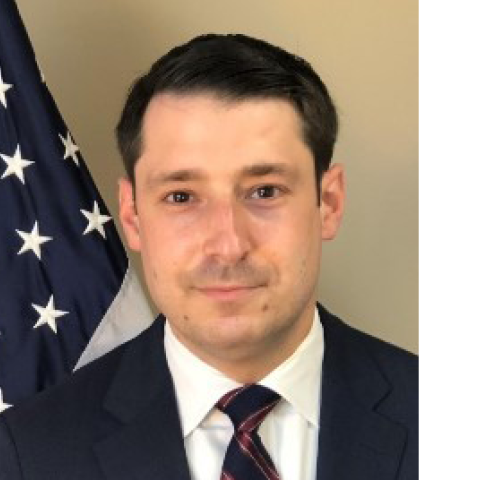
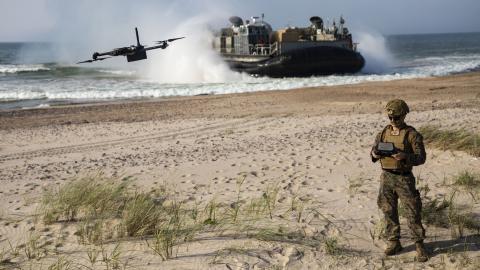
Caption
A US Marine pilots a Skydio unmanned aerial system during an amphibious landing for Northern Coast 2023 in Ventspils, Latvia, on September 12, 2023. (Jesus Sepulveda Torres via DVIDS)
Related Events
27
February 2026
Virtual Event | Online Only
Security, Normalization, and International Cooperation in the Middle East with Sir Liam Fox
Featured Speakers:
Rt. Hon. Sir Liam Fox
Zineb Riboua

27
February 2026
Virtual Event | Online Only
Security, Normalization, and International Cooperation in the Middle East with Sir Liam Fox
Hudson Institute’s Center for Peace and Security in the Middle East will host Sir Liam Fox for a conversation on the evolving geopolitical landscape in the Middle East.

Featured Speakers:
Rt. Hon. Sir Liam Fox
Zineb Riboua
03
March 2026
In-Person Event | Hudson Institute
Securing Venezuela’s Freedom after Maduro
Featured Speakers:
Leopoldo López
Joel Frushone
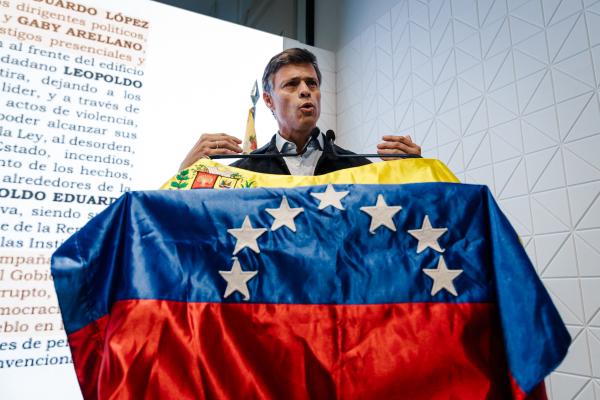
03
March 2026
In-Person Event | Hudson Institute
Securing Venezuela’s Freedom after Maduro
Please join Venezuelan opposition leader Leopoldo López for a discussion on the future of Venezuelan democracy, the role of civil society in credible political and economic reforms, and the pathway to free and fair elections.
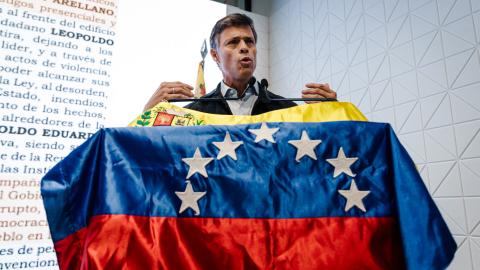
Featured Speakers:
Leopoldo López
Joel Frushone
03
March 2026
In-Person Event | Hudson Institute
A Strategic Response to Sino-Russian Cooperation: Perspectives from Europe and the Indo-Pacific
Featured Speakers:
Thomas J. Duesterberg
Justyna Szczudlik
Greg Brown
Moderator:
Masashi Murano

04
March 2026
In-Person Event | Hudson Institute
Securing America’s Critical Mineral Supply Chain: A Conversation with Congressman Rob Wittman
Featured Speakers:
Mike Gallagher
Congressman Rob Wittman

04
March 2026
In-Person Event | Hudson Institute
Securing America’s Critical Mineral Supply Chain: A Conversation with Congressman Rob Wittman
Join Distinguished Fellow Mike Gallagher and Congressman Rob Wittman (R-VA) for a discussion on the congressman’s recently introduced Securing Essential and Critical US Resources and Elements (SECURE Minerals) Act and Congress’s role in securing America’s economic security.

Featured Speakers:
Mike Gallagher
Congressman Rob Wittman















